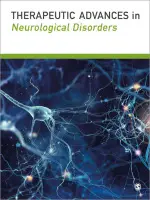In their new study, the team led by Richard Nicholas looked at how health systems in different countries influence clinical diagnosis and access to treatment for multiple sclerosis. Guidelines for prescribing course-modifying treatments in multiple sclerosis typically focus on the clinical diagnosis of the relapsing-remitting form of the disease. However, these guidelines and their monitoring vary from country to country. The authors of the study highlight that standardising the approach to diagnosis, such as assigning a diagnosis of relapsing-remitting or secondary-progressive multiple sclerosis, allows a better understanding of how different health systems influence the clinical diagnosis and treatment approach.

Nicholas, R., Rodgers, J., Witts, J., Lerede, A., Friede, T., Hillert, J., Forsberg, L., Glaser, A., Manouchehrinia, A., Ramanujam, R., Spelman, T., Klyve, P., Drahota, J., Horakova, D., Joensen, H., Pontieri, L., Magyari, M., Ellenberger, D., Stahmann, A., Butzkueven, H., Van Der Walt, A., Bezlyak, V., Lines C., Middleton, R. (2023). The impact of healthcare systems on the clinical diagnosis and disease-modifying treatment usage in relapse-onset multiple sclerosis: a real-world perspective in five registries across Europe. Therapeutic advances in neurological disorders, 16, 17562864231198963. https://doi.org/10.1177/17562864231198963 PMID: 37771841
Abstract
Introduction: The guidelines for prescribing disease-modifying therapy (DMT) in multiple sclerosis (MS) are based on the clinical diagnosis of relapsing-remitting MS (RRMS). However, guidelines for prescribing DMT and monitoring vary from country to country. Standardizing approaches to diagnosis, such as making a diagnosis of RRMS or secondary progressive MS (SPMS), allows for exploration of how health systems influence clinical diagnosis and treatment approach.
Methods: We analysed data from registries of six cohorts in five countries (Czech Republic, Denmark, Germany, Sweden and the United Kingdom) in patients with an initial diagnosis of RRMS. We used a pre-existing algorithm (DecisionTree, DT) to standardize diagnoses of RRMS or SPMS. We identified five global factors influencing DMT prescribing: provision, availability, funding, monitoring and audit, and analysed data against these concepts using meta-analysis and univariate meta-regression.
Results: In 64 235 patients, we found differences in DMT use between countries, with higher use seen in the RRMS and lower in the SPMS, with correspondingly lower use in the UK compared with other registries. Factors such as female gender (p = 0.041), increasing disability according to the Expanded Disability Status Scale (EDSS) score (p = 0.004) and the presence of monitoring (p = 0.029) in SPMS influenced the likelihood of receiving DMT. Standardisation of diagnosis revealed differences in reclassification rates from clinical RRMS to DT-SPMS, with Sweden having the lowest rate (Sweden 0.009, range: Denmark 0.103 - UK portal 0.311). Patients with a higher EDSS (p < 0.03) and female gender (p < 0.049) were more likely to be reclassified from RRMS to DT-SPMS. The study also examined the impact of diagnosis on DMT use in clinical SPMS, finding that the prescribing environment and audit procedures influenced access to treatment.
Discussion: The results highlight the importance of a health systems approach to validating the clinical markers of MS progression to facilitate appropriate prescribing, with some flexibility in uncertain cases to ensure continued access to treatment.
You can read the full article in English on the magazine's website Therapeutic advances in neurological disorders.

